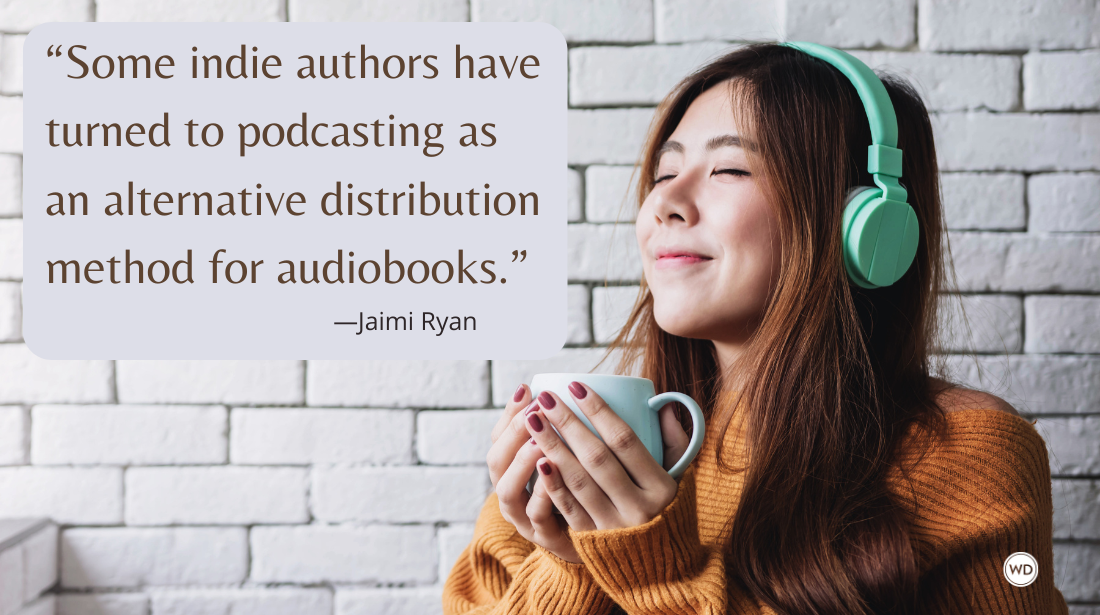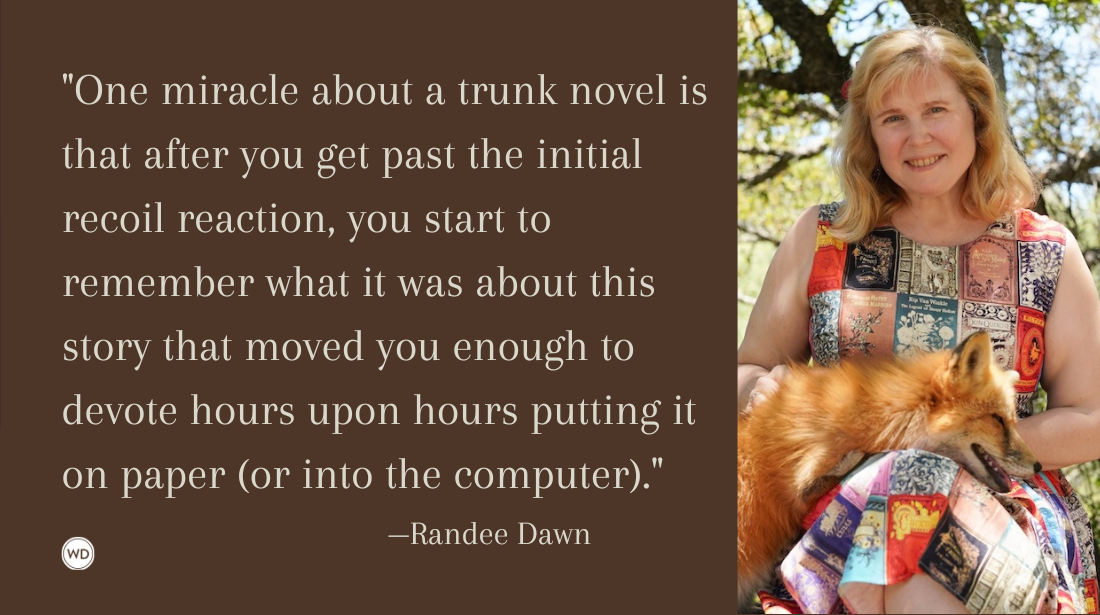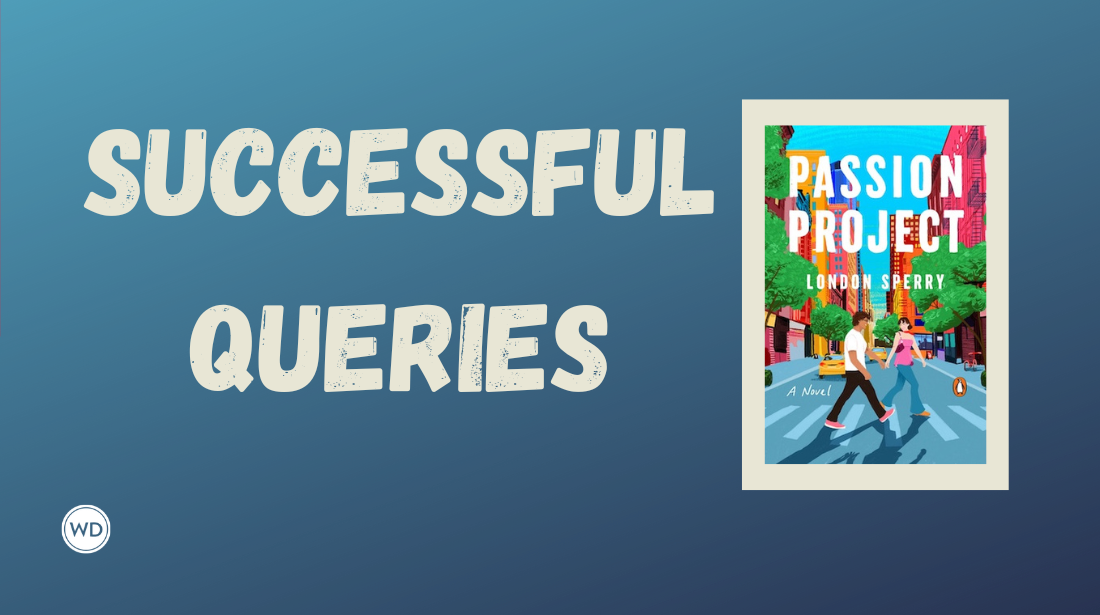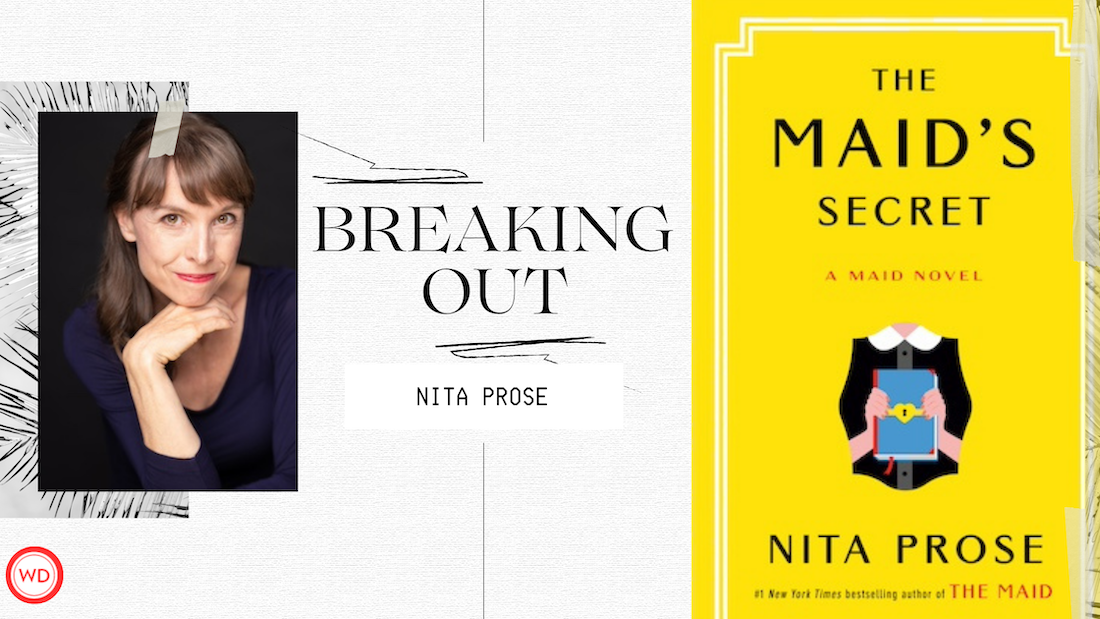The Evolving Literary Agent: What Savvy Writers Need to Know
Progressive literary agencies are redefining the traditional role of the agent—and finding new ways to support authors in the digital era. Here’s what savvy writers—beginning and experienced alike—should know.
Progressive literary agencies are redefining the traditional role of the agent—and finding new ways to support authors in the digital era. Here’s what savvy writers—beginning and experienced alike—should know.
Claire Cook is living the dream. She wrote her first novel at 45, and five years later, she walked the red carpet at the Hollywood premiere of the adaptation of her second novel, Must Love Dogs. She’s the USA Today bestselling author of 11 novels, and her books have been translated into 14 languages.
And she no longer has an agent.
Cook recently broke with her long-standing agency when they reached an impasse over how to handle her indie work. She says that while she loved the support of being agented, she didn’t want to be pressured to sell her new work to traditional publishers, and would prefer an agent willing to allow her the freedom to pursue alternatives. As she considers her next steps, she says, “I decided to write the book I’d wanted to write for years that nobody on my former publishing team felt fit my novelist brand.”
Cook’s story illustrates a larger shift in the industry, where authors’ needs and long-term career trajectories are no longer automatically defined by selling their next book to a big publisher. Self-publishing and digital publishing now can serve as important (and lucrative) building blocks for growing a readership, and more authors are choosing a hybrid model of publishing, where they decide how and where to publish on a project-by-project basis.
So agents’ guidance and support may be as critical as ever, but flexibility is needed, too—which has led to a reassessment and re-envisioning for many agencies in how they support their clients. The difficulty is that, traditionally speaking, the only acceptable way for agents to earn money is through commission on authors’ sales, typically starting at 15 percent. The Association of Authors’ Representatives—the professional organization for literary agents—explicitly prohibits its members from acting as publishers given the potential conflict of interest that can arise from representing an author to traditional publishers while also publishing his work. Therefore, most agents have begun assisting with self-publishing only on a commission basis, taking their standard 15 percent on sales.
“We make sure there is … no incentive for us to recommend to our authors that they pursue one avenue or another,” says Laura Rennert, senior agent with Andrea Brown Literary Agency. “We advise our authors based on an objective weighing of the authors’ business and artistic interests and a consideration of what is most important to them.” Rennert points to The New York Times bestseller Catherine Ryan Hyde as a success story in terms of how her agency works. Hyde, who had made her name years before with the novel-turned-movie-turned-movement Pay It Forward, was the first client who Rennert later helped self-publish to supplement her traditional deals. “We offer representation selectively, as we always have, and make what we hope is a long-term commitment to our clients.”
The Value of Agent-Assisted Self-Publishing
In the self-publishing community, some authors bridle at the thought of agents taking a 15 percent commission on their work. But it’s important to make a distinction between (1) agents who take a commission on specific projects where they provide assistance, administration, and/or marketing support, and (2) agents who take a commission on every work their client produces, regardless of the agency’s support.
The first scenario raises an important question: Does an author benefit from having an agent assist with self-publishing? [Help other writers! Click here to Tweet and share it!] Arguably it depends on the personality of the author, her existing skills and resources, and how much time she can spend on the self-publishing process. Some authors are well-equipped to be publishing entrepreneurs, while others prefer the experience and resources of someone in the industry they trust.
Forward-thinking agents see long-term benefit in assisting their clients, but point out that it’s not an insignificant extension of the work they do. “It’s very time intensive … The bookkeeping is horrendously expensive (and we don’t charge for our time here),” says Liza Dawson, of Liza Dawson Associates. “But it’s also fun. I’ve just retitled and repackaged my client Tom Stone’s book. It was originally published by Bloomsbury. And finally we figured out who the book’s audience is, how to package it, and what the right title is.”
The agents who are engaged and invested in their clients’ self-published work don’t click “upload” and walk away. They help in a strategic manner, in many ways doing the same work a publisher would, with ongoing marketing support and insight. “It’s not just, ‘Let’s toss this one thing out here, hurl this other over here, and hope something works,’” The Knight Agency’s Deidre Knight says. “We look at the author, what type of writer they are and … see how doing a particular work or series in digital self-pub might enhance a broader picture.”
Several years ago, when agents began assisting clients with self-publishing, some offered a one-size-fits-all model, which usually meant a 15 percent commission on sales, with the author paying freelance costs, such as copyediting, cover design and e-book formatting.
Today, some have moved to tiers of service or customizable arrangements, to take into account the unique needs of each client. The agent may earn a higher commission for providing hands-on marketing support, which can involve advertising placements, blog tours, advance galleys, Goodreads campaigns and more—if the author wants.
When Agents Use Third Parties to Assist
None of the agents mentioned in this article obligate their clients to self-publish with them; it’s strictly optional, and authors are free to self-publish on their own with no financial obligation to the agent. This is an important detail, because some agencies demand a 15 percent commission on all of an author’s work, which means, in practical terms, the author must work through the agency to self-publish (as was the situation Claire Cook found herself in).
Agencies that demand you publish your indie work through them may use distributors such as Argo Navis to provide the service, which can be financially disadvantageous for the author. For example, for a $10 ebook, this would be the financial breakdown for a single unit sold through Amazon using Argo Navis:
- Amazon takes 30% ($3), leaving $7
- Argo Navis takes 30% of the $7, leaving $4.90
- The agent takes 15% of $4.90, leaving $4.17 for the author
The author earns less than if the agent were distributing directly on her behalf, plus the agent receives 15 percent even though Argo Navis does the work. Furthermore, distributors such as Argo Navis do not cover freelance costs; those are borne by the author.
Argo Navis’ services are available to authors only through a literary agent. Another program available only through an agent is the Amazon White Glove program, which might be considered as competing against Argo Navis.
You won’t find a complete list of agencies involved in White Glove, nor will you find mention of this program on Amazon’s site, but the basic outline is this: The agent assists the author in self-publishing exclusively with Amazon for 6–12 months (taking his customary commission), and in return, Amazon offers 30 days of promotion on its website, in rotation with other titles in the program. Before going down this path, it’s important to ask your agent what happens after the exclusivity period is over, which brings us to the larger issue of contract terms for agent-assisted arrangements.
What You Should Ask
Before self-publishing with an agent’s assistance, ask the following questions:
- Who covers the costs associated with self-publishing? In most cases, the author covers the cost, but sometimes the agent will cover expenses and deduct them from the author’s earnings.
- Who controls rights to the self-published work? (It should be the author.)
- How long must you commit to giving the agent 15 percent of sales on the work? (It shouldn’t be indefinitely.)
- How/when can the agreement be terminated?
When an agency assists clients directly (without a distributor such as Argo Navis), it generally sets up distribution accounts for its clients (e.g., at Amazon), administers those accounts, and pays the authors after taking its commission. Ideally, the author has access to those distribution accounts—which means access to pricing, files and reporting—and those accounts are turned over to the author if the agreement with the agent is terminated. That way the author doesn’t risk later having to re-upload the book as if it were an entirely new product, losing sales rankings and reviews in the process.
If you seek an agent who would support a hybrid approach to your publishing career, look for those who already have a track record with hybrid clients. Query your project on its own merit, and if representation is offered, tell the agent about your publishing goals, and ask:
- How does the agency assist with self-published work, if at all? What arrangements are most common or acceptable?
- What happens if you self-publish without the agency’s assistance?
The overriding goal for most agents, especially in representing unpublished clients, is to sell the authors’ work to traditional publishers. Don’t expect to receive a response to your initial submission with an offer to help you self-publish; that conversation typically happens only after months of trying the traditional route, and by mutual agreement. For established clients, agents may assist in getting their backlists on sale again, and helping release digital shorts in between larger book releases (a strategy more and more authors are using to keep readers engaged and earn extra money in the process).
Select Agencies That Assist With Self-Publishing
The following agencies (listed in alphabetical order) offer a supportive environment to assist clients in digitally self-publishing their work. Authors retain their rights, but may be asked to commit to a set term of agreement, such as six months, a year or longer. Note that some of these agents have broken with AAR, but that isn’t necessarily the red flag it once was. As agents forego working on a commission-only basis, and act more like talent managers or even publishers, they will be working outside of AAR’s current guidelines. Still, as always, read contracts carefully before signing.
Andrea Brown Literary Agency
andreabrownlit.com
Author covers all costs; once the author recoups all expenses through sales, then the agency earns its standard commission. No set term of agreement.
April Eberhardt Literary
aprileberhardt.com
Helps authors evaluate potential publishing partners and models, identify and vet freelancers, and find supplemental resources as needed, based on the authors’ goals and skill sets. Works on either a commission or fee-for-service basis.
Curtis Brown (UK)
curtisbrown.co.uk
Exclusively distributes through Amazon White Glove. Offers a sliding scale of commissions, conditional on the work required. Deals are flexible and meant to suit the author’s needs at that time, with no terms or fixed periods.
Dystel & Goderich Literary Management
dystel.com
Author covers all freelance costs; authors can terminate the relationship with 60 days’ written notice.
Levine Greenberg Rostan Literary Agency
lgrliterary.com/ebooks
Works with Argo Navis, Amazon White Glove and many other partners. Terms vary by author and partner.
Liza Dawson Associates
lizadawsonassociates.com
Deducts freelance costs from the authors’ earnings. No standardized model for hybrid authors; every arrangement is based on the client’s needs.
NLA Digital
nladigitalbooks.com
Established by Agent Kristin Nelson to offer clients two self-publishing options: full service and distribution-only. With full service, NLA assists clients with cover art, copyediting, file conversion and distribution. With distribution-only, clients use NLA Digital to get access to venues they can’t reach on their own, such as library markets. In spring 2014, NLA Digital opened its distribution-only services to guest authors who are not clients of NLA. Contract terms: For full-service, NLA Digital requires a two-year agreement and fronts all costs. The author reimburses NLA Digital for half of those costs via royalties earned. There is no commitment or cost involved for distribution-only. In either scenario, NLA Digital takes its standard agency commission.
The Knight Agency
knightagency.net
Offers several tiers of service and takes a customized, dynamic approach when working with clients on a project.
Trident Media Group
tridentmediagroup.com/contact-us/ebook-submissions
Accepts submissions from authors who would like to self-publish original ebook titles, or have Trident represent their foreign or audio rights. Works with Amazon White Glove, among others.
Jane Friedman is a full-time entrepreneur (since 2014) and has 20 years of experience in the publishing industry. She is the co-founder of The Hot Sheet, the essential publishing industry newsletter for authors, and is the former publisher of Writer’s Digest. In addition to being a columnist with Publishers Weekly and a professor with The Great Courses, Jane maintains an award-winning blog for writers at JaneFriedman.com. Jane’s newest book is The Business of Being a Writer (University of Chicago Press, 2018).








